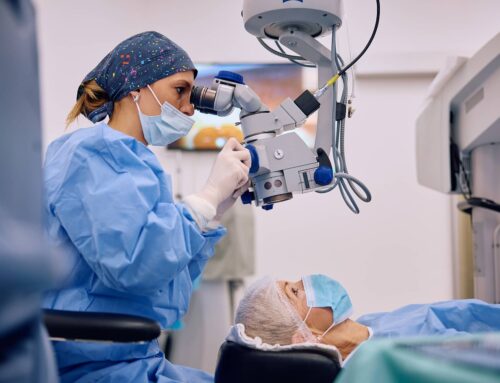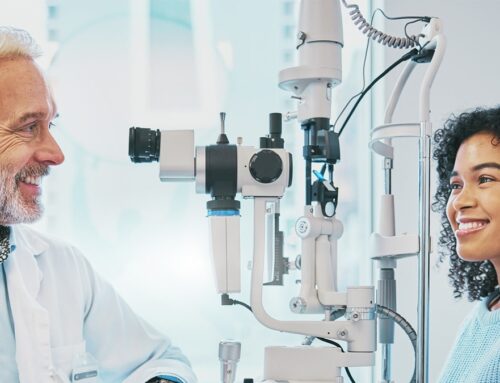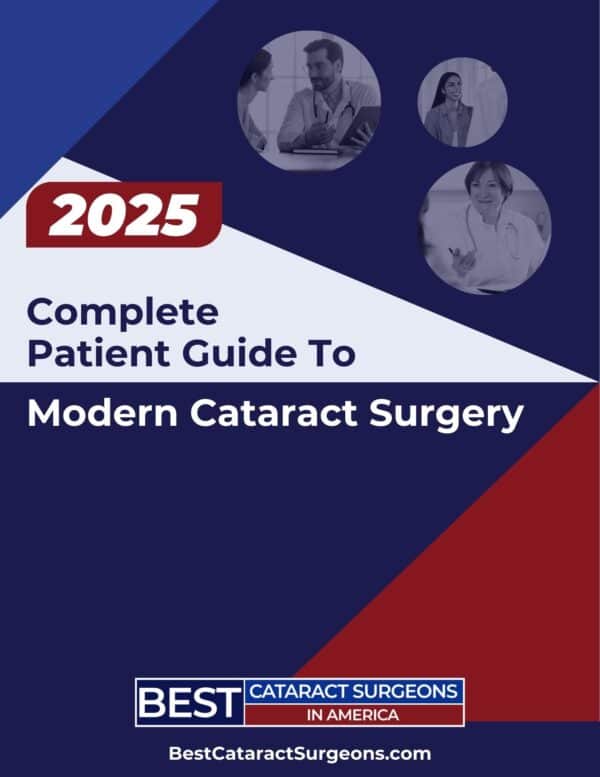Generally, cataracts do not hurt, but you will notice that the symptoms are getting worse over time. There are less common types of cataracts such as those caused by trauma or very advanced mature cataracts that can lead to pain. It is possible to start experiencing symptoms like inflammations and headaches, which may be uncomfortable to live with. Again, these types of pain associated with cataracts are quite rare, and less than 1% of cataracts in the United States.
In the most advanced cataracts, the cataract can take up more space inside the eye disrupting the way the fluid moves inside the eye causing increased intraocular pressure. This is called “phacomorphic glaucoma” and can lead to permanent vision loss if not promptly fixed. You should contact an eye doctor immediately for pain in your eyes.
No matter how you may feel, you need to ensure that you visit a doctor to check your eyes and advise you on how to treat the eyes. If the cataract is severe, you may risk permanent damage to your eyes, and you need to ensure that you have them removed before they affect your eyesight further.
Cataract Surgery
Cataract surgery is an outpatient procedure, and you will not need to spend the night in the hospital so that you can have the operation done. The ophthalmologist will remove the lens that has been affected by cataracts and replace it with an artificial lens.
The surgery is done either using a laser or manually. Another tool used in surgery is an ultrasound device that is meant to break the affected lens apart so that it can be removed. Before this surgery is done, the doctor will put some eye drops in your eye to numb it before the procedure.
The ophthalmologist will make a small incision so they can access the lens. You should not feel any pain because the numbing eye drops will ensure that your eyes are numb all through the procedure. When the doctor has finished breaking down the lens, they will remove the pieces and then replace them with your new lens implant.
Most patients in the United States will not need stitches after this surgery, and you can go home immediately after the procedure.
The tissue in the eyes will seal itself, in a similar way in which a small papercut doesn’t require stitches to heal. Ensure that you have someone to drive you home after the surgery because you may not drive yourself home after the procedure.
This surgery will not take a long time, and you may feel some discomfort in the beginning, but once it is successful, you can regain your eyesight, and you may not even need glasses after healing. A minor irritation is normal after surgery, but anything more is uncommon, and you should talk to your doctor for any post-operative pain.
Recovery From Cataract Surgery
Even though the surgery is not painful, it is possible to get some side effects from the surgery, and you need to ensure that you get the proper medication after the surgery. Recovering is straightforward, and in the next several months, you may need to be extra careful so that you can heal completely.
During the first week or two after surgery, you must refrain from any strenuous activities. This is especially vital in the first days, and you should also protect your eyes from getting water or doing anything that will get water in your eyes, like swimming. Your surgeon should review a list of activities that you should avoid.
You might be technically awake for the surgery, but you should feel relaxed from sedatives, and also, the numbing medicine will keep you from experiencing pain.
Ensure that you consult your eye doctor about any risks before you get the surgery so that you are prepared and you can go ahead with all knowledge about the procedure you are about to get. Report any pain you have after the surgery to make it easy for the doctor to take care of you or treat any infections you may have, although infection is fortunately quite rare in routine cataract surgery.











